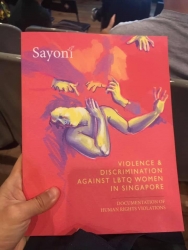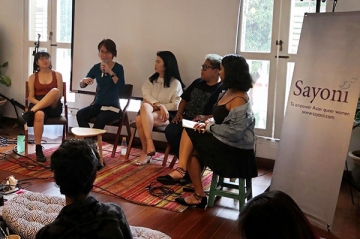It was said that actual estimates of genuine HAPPY relationships range from 2% to 10%. This is a pathetic range. (Many straight marriages that remain unbroken are so because of children, financial matters, religious reasons and the stigma of divorce.) Certainly, more of us can do with satisfying relationships.
Existing debts can arise from positive or negative incidents from the past to the present. But no matter what the attributes of this debt, one partner consciously or unconsciously experience being either the debtor or the creditor.
Let’s illustrate this with two examples:
The positive incident- a sacrifice for the relationship:
1. Claire sacrificed her overseas scholarship for the sake of remaining with her girlfriend (Lydia), who is really bad at long distance relationships. Lydia “repays” this favour/debt with expensive gifts and accommodating Claire’s every wish. But to Claire, a debt still exists- she thinks that Lydia is not doing enough after the sacrifice she made for Lydia. So she expects Lydia to “repay” even more… to the extent that Lydia begins to feel unappreciated and “taken for granted”.
The negative incident- infidelity:
2. Casey had a one-night stand when she was drunk at a lesbian bar. She felt extremely remorseful the day after, for she is in a monogamous relationship. To make up for this mistake, Casey responds to Lisa (her girlfriend) with “whatever you wish dear”. Her efforts to please Lisa eventually got onto Lisa’s nerves. Lisa could not understand how Casey transformed from being assertive to completely passive.
So we see that emotional debts can come out of either helpful (positive) or hurtful (negative) incidents. It is also important to note that relational debts depend on individual perceptions, not some objective truth out there (does this even exist anyway?!).
So who determines the debt?
Case 1: The self-perceived debtor
Angel is really keen on a dance-form that is particularly costly to learn. Her girlfriend Jer, generously parted with thousands of dollars to cover the full cost of her dance. Jer is happy to do so, without any strings attached, because seeing Angel happy makes Jer happy. One day Jer was sent overseas by her company for 5 years, no less. Angel willingly followed Jer to this new country, forgoing her tertiary education because “she has done so much for me, this much i should do for her.” This makes Angel a relational debtor, although Jer is unaware of it.
Case 2: The self-perceived creditor
Jackie and Debbie were in a rocky relationship. After Jackie introduced a friend, Linda, to Debbie, Debbie and Linda hit it off straight away. Soon after Debbie requested for a break-up to be with Linda. Jackie is furious at Linda for “snatching” Debbie away and demanded that Linda breaks up with Debbie if they (Linda and Jackie) are still “brothers”. Linda agrees that getting together with Debbie has cause Jackie unhappiness. But this happiness is not intentional. As such, Linda refused to acknowledge the debt as perceived by Jackie.
Jackie is thus a relational creditor, albeit not acknowledged.
In case 1, the debt is defined by Angel, the debtor. In case 2, the debt is defined by Jackie, the creditor. You can see that debt needs not be acknowledged by both parties in order to have a deleterious effect on relationships.
In concluding part 1 of this series, emotional debts impact our relationships- whether romantic or platonic. Therefore it is important for us to learn to identify these “debts” and resolve them. In part 2 of this series, we will look at characteristics of people who frequently fall into the roles of creditors and debtors.
-End Part 1-
Concepts from “You Owe Me- The emotional debts that cripple relationships” by Eric J. Cohen and Gregory Sterling.




Comments
November 27, 2006 at 12:23 am
[...] What do I think of love on a rebound? Personally, I dont think its fair for the next girl. The emotional baggages would create an expectation from the next girl to replace whats lost. Worse, theres the debtor-creditor situation to manage in the relationship. [...]
RSS feed for comments to this post